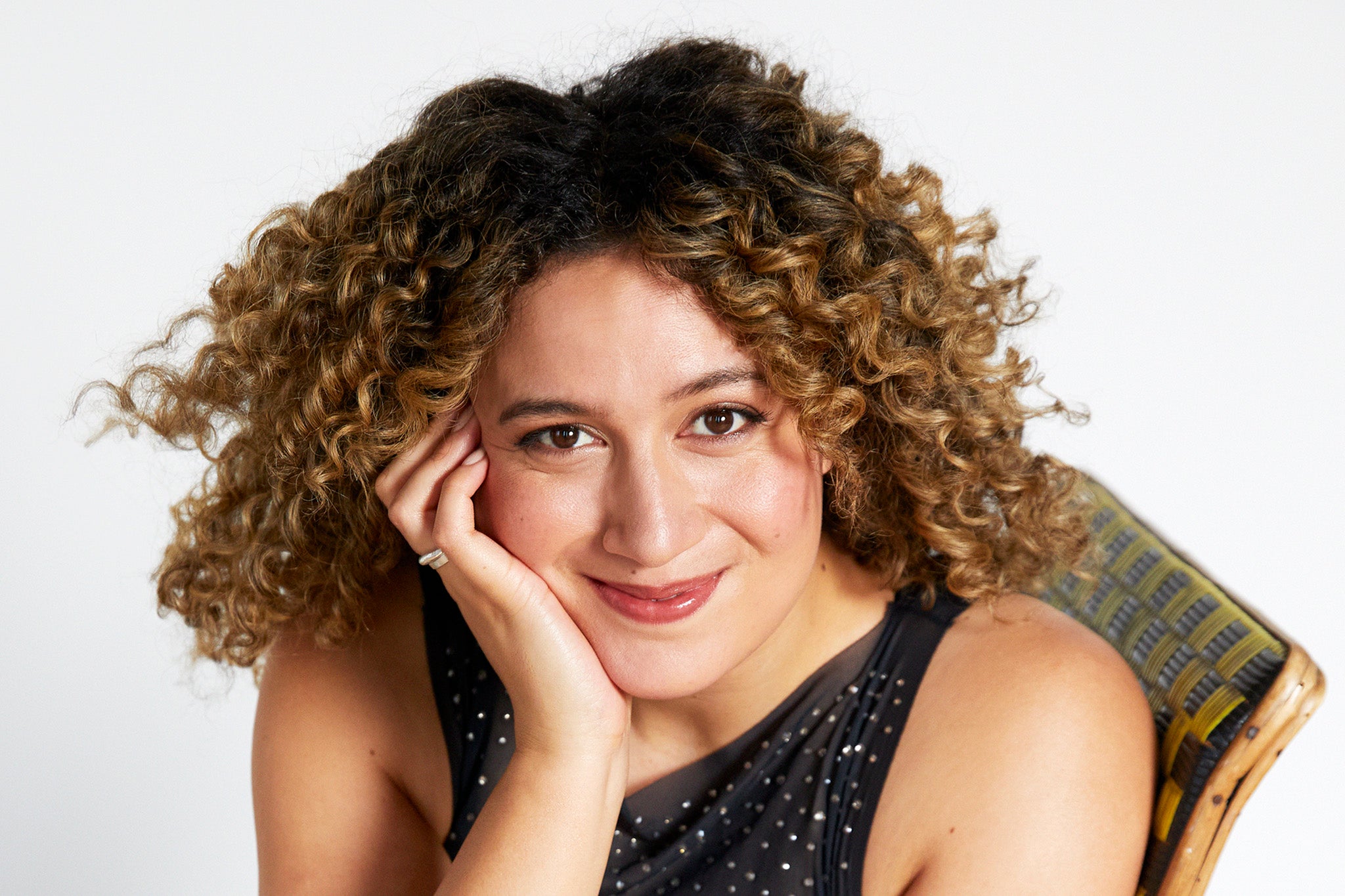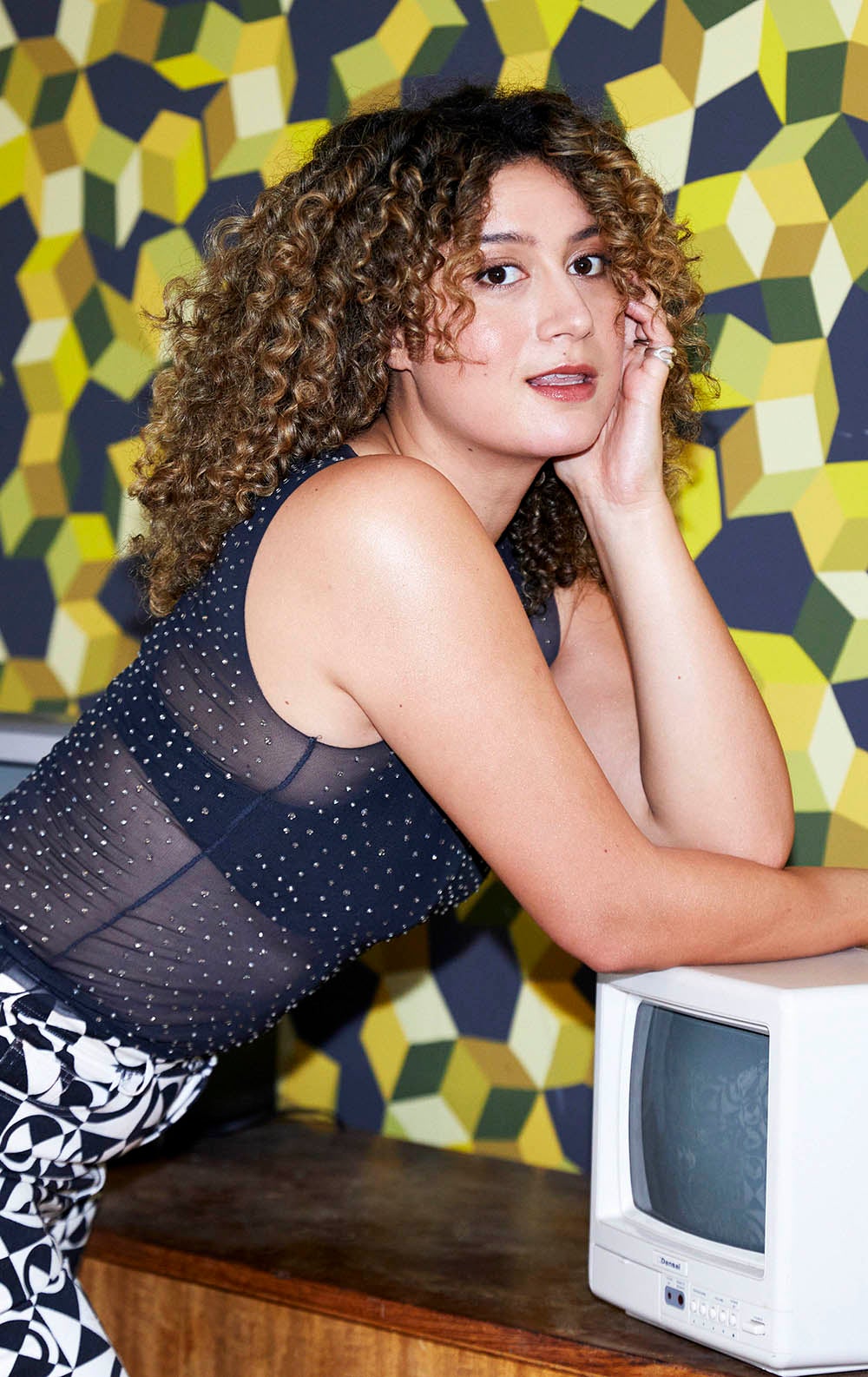Rose Matafeo on Starstruck, body image and babies: ‘I’ve got a spreadsheet of celebrities who don’t have kids’
The Kiwi comic and ‘Taskmaster’ regular has returned to the Edinburgh Fringe with more tales of millennial woe, and will soon unveil series three of her smash hit romcom subversion ‘Starstruck’. She speaks to Isobel Lewis


Your support helps us to tell the story
This election is still a dead heat, according to most polls. In a fight with such wafer-thin margins, we need reporters on the ground talking to the people Trump and Harris are courting. Your support allows us to keep sending journalists to the story.
The Independent is trusted by 27 million Americans from across the entire political spectrum every month. Unlike many other quality news outlets, we choose not to lock you out of our reporting and analysis with paywalls. But quality journalism must still be paid for.
Help us keep bring these critical stories to light. Your support makes all the difference.
The comedian and actor Rose Matafeo was once kicked off a fan forum for rock band Franz Ferdinand because she said she was going to marry frontman Alex Kapranos. She once appeared in a high school production of Grease where all the male roles were played by 28-year-olds. And when her cat, Burt Bachacat, went missing in 2013, she put up posters offering 100 hotdogs as a reward. In her stand-up material, Matafeo excavates the mortifying minutiae of her friendships, her adolescence, and her period-tracking app. But, she tells me, it’s far more common for her to be mistaken for a political comic – “being the person who I am, which is a brown woman in the world”. She sighs. “It’s bizarre when you just literally talk about being a woman, and people are like, ‘Wow, it’s really cool you talk about feminism.” The 31-year-old’s head moves so vigorously that her curls bounce. “I love feminism and I love being a feminist, but I’m not even getting into the hardcore s***!”
Born in New Zealand to a Samoan father and a Scottish-Croatian mother, Matafeo has marked her place on the British comedy circuit with this trademark mix of energy and honesty. The same candour that won her the Edinburgh Comedy Award with her 2018 show Horndog – making her, somewhat depressingly, the first person of colour and the fifth woman to win in its 42-year history – permeates over Zoom. Dressed in a black T-shirt, she is enthusiastic and thoughtful, and prone to interrupting herself to go off on tangents. It’s a trait only exacerbated when she realises midway through our conversation that she’s lost her laptop charger. We continue our chat as Matafeo bounces from room to room, scrambling through bags and checking plugs all while clutching the computer below her chin. “I’m so sorry you’re watching all this happen,” she says. In the end, she gives up and collapses onto her sofa. She probably has enough charge left.
To most audiences, Matafeo is best known for one of two things. One is that she’s the creator and star of Starstruck, the Bafta-nominated BBC Three sitcom. The other is that she’s widely considered to be one of the best and funniest contestants on Taskmaster, the adored Channel 4 show in which comedians are asked to carry out eccentric challenges. She is such a force of nature on the series that she’ll soon be stepping into Greg Davies’ role to host Taskmaster Junior, a kids’ spin-off, which will debut this autumn. The format has been a good one for Matafeo, who was at one point – like many comics – a staple of the TV panel-show circuit. Given this, as well as her close friendship with satirist-turned-Pod Save the UK host Nish Kumar, I’m surprised she hasn’t given more explicitly political comedy a go. Matafeo says she’d love to, but points out that she’s still in the process of waiting for her “indefinite leave to remain” visa. “I’m just gonna shut my mouth for a good amount of time until I very nicely embed myself in the country, and then I can possibly start,” she jokes.
Besides, Matafeo says, she often feels like “an absolute f***ing idiot when it comes to politics”, both by nature of being friends with the very-well-versed Kumar “and being someone who’s not born here and not from this country. As a person who’s moved here and is setting up a life here, I think you feel – which is the problem – a little disempowered to have a say. The more I try and find community here... that hand-in-hand comes with a stronger confidence in having a political voice.” In the weeks after our interview, she receives the visa, so who knows what could be coming. “Maybe that will be the step up in stand-up. Reading a number of manifestos, just soberly on stage with no laughs.” She giggles. “That’ll be the next show. See them all off. That’ll be fun.”
I’m speaking to Matafeo ahead of the return of Starstruck, the romantic comedy hybrid responsible for jettisoning her into the mainstream both in the UK and around the world. The series, which is broadcast in nearly 100 countries and is now back for its third outing, follows Jessie (Matafeo), an ordinary woman who has a one-night stand with a Hollywood star (Nikesh Patel’s Tom) and attempts to begin a relationship with him. The couple’s dynamic may be ripped straight from Notting Hill, but Starstruck has otherwise always subverted the tropes and stereotypes most associated with romcoms. Series two began seconds after the end of series one, and concluded with Tom and Jessie desperately in love. Series three, which returns later this month, similarly picks up seconds after those final moments, then jumps forward two years. There, the pair have had a messy split and are navigating life in each other’s orbits, all while their mutual friends are having weddings and babies.
Watching series three, I find myself fixating on the show’s relationship with “the meet-cute” – that classic romcom device of a dramatic yet adorable first interaction that signals something significant is on the horizon. We live in an age when apps are perceived to have de-romanticised dating, so people seem to ignore problems in their relationships if they happen to meet their partners the old-fashioned way, meaning in person. Tom and Jessie remind me of that. Their story is so good, so romcom-y, that they constantly overlook the fact that they’re just not that compatible.
I say all this to Matafeo; it’s something I’ve often discussed with friends, but rarely seen explored in pop culture. “Oh my God, yeah!” she says, with the enthusiasm that infects most of her answers. “I think that you put on a pedestal these moments of ‘Oh, but it’s so romantic!’ I have sadly – not sadly, maybe soberly – come to realise that romantic love is very, very different to long-lasting relationships.”
Now you make me sound like an old crone. Like, ‘What has changed in the industry, coming back to it?’ I’m thirty-oonnnnnneeee!
Matafeo describes Starstruck as a “soup” of the writing team’s (including fellow Kiwi comics Alice Snedden and Nic Sampson) recent experiences with “break-ups, new romances, a goddamn pandemic”. But there are clear similarities between Jessie and Matafeo, to the point where our conversations about the character quickly morph into conversations about her own life. Take series three, where the subject of having kids proves to be a sticking point for the couple – one that is passive-aggressively raised by Tom and dismissed by Jessie, who simply doesn’t care enough to discuss it.
Matafeo feels the same. She says she’s “literally not that bothered either way”, and is in the process of figuring out how to explore the subject as she returns to stand-up for a new run of work-in-progress shows. “I obsessively, secretly, follow Instagram accounts that are like, ‘Here are all the celebrities who don’t have kids’,” she says. “Honestly, I’ve got a Google spreadsheet about celebrities who don’t have kids.” That’s “not to say, God, you never feel it,” she stresses, “but I’ve been really interested in that aspect of getting into my thirties and going, ‘Oh s***, that maternal instinct everyone told me was going to kick in? Has not kicked in!’”
People might assume Starstruck is an autobiographical programme, but the fiction of it all does add an important barrier between Matafeo and her creation. Her live comedy, in contrast, is all her. As we speak, she’s preparing for a two-week run trying out new material at the Edinburgh Fringe. Months earlier, I saw Matafeo put this to the test at a mixed-bill comedy night, where she spoke with trademark honesty about her recent experiences on Hinge.

Talking about the here-and-now is something she’s still getting used to; after all, much of Horndog and 2017’s Sassy Best Friend revolved around Matafeo’s teenage years. Knowing how much to share about her present dating experiences has been a challenge. “When I used to do stand-up earlier on in this country... there was a bit more freedom to be quite vulnerable and personal, because people didn’t know who the f*** you were,” she says. “Now, if I’m talking about personal stuff, people are like, ‘What’s the goss?’” (Matafeo previously dated five-time Edinburgh Comedy Award nominee James Acaster, although has deliberately never named him when discussing exes on stage.)
Matafeo’s return to the Fringe comes amid heightened discussions about the cost of appearing at the festival. She first performed there in 2015, and is among a number of high-profile comics who’ve said “there would never be any expectation that I’d ever make any money from the Fringe” regarding their previous shows. She took money from her life savings to fund her previous runs, “and that was just how it was when I started, which is so s***, because if you don’t have that chunk of money to be able to invest in the show, then you’re not gonna be able to go”. Really, she admits, she wishes she’d taken a break this year, but “horrific internalised capitalism” has made her feel like she needs to “keep being productive or you’ll die and not be worthy of anything”. She exhales. “So, you know. Fun stuff.”
While her star has grown immeasurably since her early days at the Fringe, so has the comedy industry. Now, she points out, all-female line-ups with “more than one not-white person” are common, without identity being the main theme. “But now you make me sound like an old crone. Like, ‘What has changed in the industry, coming back to it?’” She adopts the voice of an elderly woman and wails. “‘I’m thirty-oonnnnnneeee. I’ve been doing comedy for too long. This is terrible!’”
The new comedy class may be “much more cool and far more wide-ranging”, but the industry still has problems when it comes to progress and the way it treats women. Last year, I interviewed Matafeo’s Starstruck co-star Emma Sidi, who brought up a specific review of the show that had bothered the pair. As soon as I raise the topic, Matafeo knows what I’m talking about. “Oh, the body one?” Yep, the body one. To paraphrase, the reviewer praised the show for featuring two female leads who don’t look like the usual smooth-faced, stick-thin women you see on Instagram. The pair found it exhausting. What did their bodies have to do with it?

Comments like these, Matafeo has found, have become more frequent as the show is broadcast around the world. “You get people being like: ‘Yes, go girl! Great to see a mid-size gal on screen, showing her rolls!’ I’m like... look, I don’t want to... can we just not? I know that it’s a positive thing, but you’re politicising my body in a way that I don’t.”
Matafeo is fired up. I don’t blame her. If it was my body, I’d be equally enraged. “I accept that being a public figure and being in a thing that goes out across the world [means] you’re open to interpretation in what your performance is and what your show is. I’m totally down with that... It’s just always women. You are never saying, ‘Man, it’s so cool to see Bill Hader, or some guy who’s a “tall king”, with stubble or a stomach.’ No. Never. It’s always, always commenting on women’s bodies, when they’re not even speaking about them themselves.”
The comments might “irk” Matafeo, but she’s still able to squeeze a joke out of it. “Next thing, you’ll be seeing us in 20 years, and think, ah, they got a lot of fillers because of that comment. Imagine! If that’s what motivated me.”
She lets out one last laugh, and the screen cuts out. The charger-less computer catches up with her just as our time comes to an end. It’s an abrupt conclusion, but a suitably fitting one. Matafeo goes out as she comes in: with a bang.
Rose Matafeo is performing at Edinburgh’s Monkey Barrel 4 until 27 August. ‘Starstruck’ returns soon to BBC Three and BBC One



Join our commenting forum
Join thought-provoking conversations, follow other Independent readers and see their replies
Comments